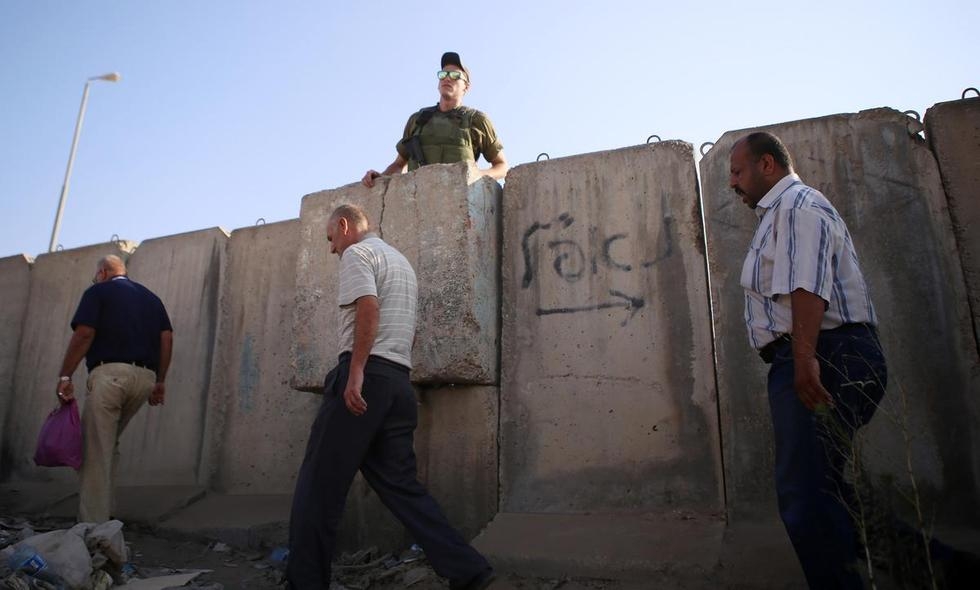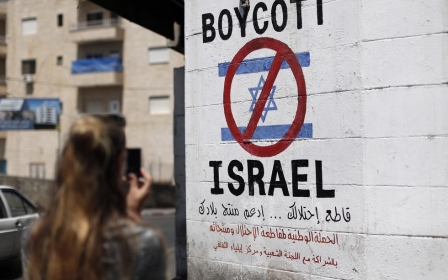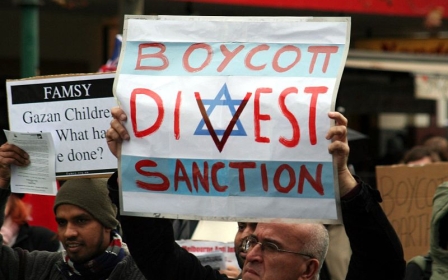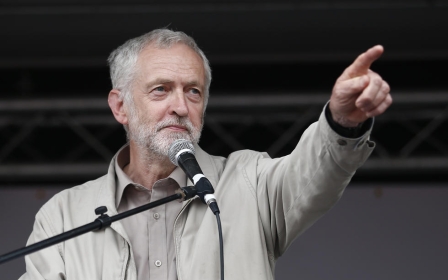Iran deal shows sanctions on Israel necessary for peace

The deal signed recently to limit Iran’s nuclear ambitions to a peaceful, non-military programme followed years of difficult negotiations that were underpinned by stringent sanctions.
In its report “Impact of Sanctions on Iran,” the United States Institute for Peace claimed “Sanctions have constricted Iran’s economy and played a role in bringing Iran to the negotiating table over its nuclear programme…”
However, writing in 2014, the Brookings Institute’s Suzanne Maloney questioned whether Iranian-style sanctions could succeed with Moscow following its intervention in the Ukraine. She concluded: “Even though sanctions have helped generate a more constructive environment for negotiations between the two old adversaries, it is far too soon to declare victory, and the collateral impact of sanctions on Iranian politics and society remains too little known to tout the measures as an unqualified success.”
It has to be acknowledged that another important factor was the change of leadership in Iran when President Hassan Rouhani was elected on a platform of “reconciliation and peace”. After succeeding Mahmoud Ahmadinejad as president, Mr Rouhani declared that he wanted a substantive deal on Iran's nuclear programme within "three to six months".
Well, it took a little longer than that, but a deal was recently reached. Could it have been reached without sanctions? My view is a clear no.
Simply appealing to Iran to only pursue a peaceful nuclear programme would have had almost no chance of succeeding in dissuading it from pursuing the bomb, even though it has repeatedly claimed it was not interested in developing nuclear weapons.
While cause and effect will take perhaps years to analyse, there is no doubt that sanctions played an important role in securing the deal.
In the light of this, the question of whether sanctions could help bring about a peace agreement between Palestine and Israel is worth considering. Western powers have repeatedly argued that sanctions, or indeed other forms of peaceful pressure, would not persuade Israel to end its nearly 50-year-old occupation of Palestinian territories, but that they would be “counterproductive”.
While the “international community” has repeatedly condemned Israel’s illegal settlement building in the West Bank and Jerusalem, it has not imposed sanctions to back its condemnation with diplomatic pressure. In fact, it has even opposed the grassroots movement of Boycott, Divestment and Sanctions (BDS) which was launched by Palestinian civil society in 2005 to help end the occupation, to ensure equality for Palestinian citizens of Israel and to respecting, protect and promote the rights of Palestinian refugees to return to their homes.
The BDS movement is enjoying increasing success, with Israel suffering heavy economic losses as a result running to some 40 billion per year. This has not as yet resulted in a change of policy by Israel when it comes to the Palestinian question. But ‘friends’ of Israel have been repeatedly warning that it risks an escalating BDS campaign if it did not move towards a deal with the Palestinians. US Secretary of State John Kerry was more explicit warning of “a delegitimisation campaign on steroids” if the peace talks he launched in July 2013 failed. This was a clear reference to BDS.
As the US takes a back seat and the EU moves to revive talks between Israel and the Palestinians, it appears that no pressure is being applied on Israel to negotiate seriously. Netanyahu’s only ‘concession’ seems to be to negotiate on drawing the borders around the ‘settlement blocks’ as he indicated to EU foreign policy chief Federica Mogherini. This is a non-starter for Palestinians but without pressure, yet again, Israel will feel it can choose how and on what to negotiate.
Israeli leaders themselves supported sanctions to secure a change of policy by Iran. Netanyahu argued that “Biting sanctions” halted Iran’s nuclear weapons programme “for decades”. Naftali Bennett, then economy minster for Israel, said “I am convinced that if we ratchet up the pressure we can get the right deal, while” Israeli Defence Minister Moshe Yaalon argued “Any easing of sanctions would cause a collapse” in the efforts to stop Iran. Former Israeli foreign minister Avigdor Lieberman argued “Only ‘crippling sanctions’ will stop Iran.”
Sanctions when they suit
But closer to home, Israel has also applied sanctions against the Palestinians either as punishment or to exact change. The most recent case was that of withholding tax revenues from the Palestinians earlier this year for their accession to the Rome Statutes and pursuance of war crime charges against Israel in the International Criminal Court. It eventually released the funds, claiming "The decision was made, among other things, for humanitarian reasons and out of an overall assessment of Israel's interests at this time."
Since senior Israeli politicians support sanctions to help deliver political change when it concerns other disputes, they should understand that others believe sanctions could help deliver peace to the Holy Land, a case of “what’s good for the goose is good for the gander”.
In order to avoid another round of failed talks, the international community needs to impose a sound framework and timeline for concluding an agreement and underpin this with sanctions on Israel until a deal is concluded between them and the Palestinians, in accordance with international law. The clearest target is the illegal settlements. Not only should their products be “labelled,” they should be banned from importing into any country that wants to see peace.
The combination of a clear framework, a timeline, sanctions and war crimes cases in the ICC will send the clearest signal to Israel as a state and Israelis as a people that the game is up and it is time this decades-old conflict was settled on the basis of justice.
If Israelis do not want to see their country sanctioned and isolated then they should ensure it stops breaking the law. The morning that follows the end of impunity will be so much better for everyone.
- Kamel Hawwash is a British/Palestinian engineering Professor based at the University of Birmingham and a long standing campaigner for justice, especially for the Palestinian people. He is vice chair of the Palestine Solidarity Campaign (PSC) and appears regularly in the media as commentator on Middle East issues including the Palestine / Israel conflict. He writes here in a personal capacity. He tweets at @kamelhawwash and blogs at www.kamelhawwash.com
Photo: Palestinians cross into Jerusalem through the Kalandia border crossing which divides the city from Ramallah in West Bank on July 13, 2015.(AA)
Middle East Eye propose une couverture et une analyse indépendantes et incomparables du Moyen-Orient, de l’Afrique du Nord et d’autres régions du monde. Pour en savoir plus sur la reprise de ce contenu et les frais qui s’appliquent, veuillez remplir ce formulaire [en anglais]. Pour en savoir plus sur MEE, cliquez ici [en anglais].





